The current generation of young people are open-minded, willing to experiment and adapt to changes. They are not afraid to break old rules to create new ones. That is the premise for new creativity and experimentation of young people.
 |
| Associate Professor, Dr. Tran Thanh Nam believes that the big challenge that the current young generation is facing is information overload and difficulty in selection. (Photo: NVCC) |
On the occasion of the New Year, Associate Professor, Dr. Tran Thanh Nam, Vice Principal of the University of Education , Vietnam National University, Hanoi, shared with The World and Vietnam Newspaper his perspectives on the opportunities and challenges of the young generation in the digital age.
In your opinion, what are the greatest opportunities for today's young generation to learn and develop in the digital age?
Young people today live in an era where the real world and the virtual world exist side by side. An era where self-driving vehicles, smart wearables and AI-powered virtual reality learning technology are becoming commonplace in everyday life. They will open up a lot of opportunities.
AI-powered personalized learning opportunities allow learners to access learning content tailored to their needs, pace, and interests. This optimizes the learning process and increases effectiveness.
The Internet will provide unlimited access to resources, human knowledge and courses from the world's leading universities and international scientific communities. This will help the younger generation expand their knowledge beyond language barriers and geographical borders.
Support from AI technology, virtual reality and augmented reality provides a platform for them to test ideas, develop simulated products and connect products to the market to start a business at low cost.
Thanks to technology, young people can easily create global networks to seek cooperation opportunities and build relationships to develop their careers while still in school. They can more easily self-direct and promote autonomy in learning and developing their careers according to their interests and abilities instead of being confined within traditional frameworks.
Besides opportunities, what challenges do young generations face in learning and growing up in today's digital environment?
The major challenges facing young people today are information overload and the difficulty in filtering. The huge amount of information on the Internet makes it difficult to distinguish between reliable sources and false information. This can lead to confusion and a tendency to absorb fast knowledge, "instant noodle" knowledge, junk and inaccurate knowledge.
Excessive use of technology can lead to dependence and addiction problems such as social media addiction, internet addiction, online gaming addiction, online shopping addiction. The keyword “brain rot” is considered the word of the year 2024, which clearly shows the effects of internet addiction and excessive junk browsing leading to cognitive decline, difficulty in concentrating, reduced memory, ability to process information, difficulty in making deep and meaningful thoughts, disorientation leading to poor decision making and bad mood. It is a fact that a part of teenagers feel anxious and empty when they do not have their phones by their side.
As geographical boundaries are blurred by technology, the young generation of Vietnam is having to compete not only with their peers in the country but also with talented young people from all over the world. This can lead to stress and psychological pressure on future job positions and the risk of falling behind and becoming unemployed while still in their working age.
They are also more stressed and at greater risk of personal data security, privacy and unethical behavior on social media, and they themselves have to be very careful about integrity issues when using AI in their work, career and life.
How do you assess the ability of the young generation to adapt to the rapid changes of the digital age, especially in the field of education?
It must be affirmed that with the name “Digital natives”, the ability to absorb technology and adapt to digital transformation of today’s youth is very fast. They easily get acquainted with AI tools, new software and technology trends. This helps them effectively take advantage of the latest learning support tools.
With an open mind, ready to experiment and adapt to changes, young people are not afraid to break old rules to create new things, creating a premise for new innovations and experiments of young people.
Today's young generation's learning is no longer limited to a lecture hall or academic textbooks, but they know how to combine many different sources of materials from videos, podcasts, community lectures, expert talks, and even AI assistants.
However, they need "lighthouses" to guide them so as not to get lost in the "sea of information" and not to get stuck in the virtual world and forget the real world. These are the new "teachers" of the digital age.
 |
| Today's young generation is open-minded, willing to experiment and adapt to changes. (Source: VGP) |
In your opinion, what skills and qualities are necessary for the young generation to succeed and develop in the digital age?
Employers at the Future of Jobs 2025 panel discussion listed 26 core skills for an individual to succeed and thrive in the digital age. These skills are divided into 8 areas: cognitive skills, teamwork skills, ethics, management skills, self-regulation, technology skills, physical skills and communication skills.
Of these, the top 5 important skills cited by employers are: Analytical thinking (69%); Adaptability, flexibility and quick recovery from failure (67%); Leadership and social influence (61%); Creative thinking (57%); Self-motivation and self-awareness (52%).
It can be said that the current labor market highly values critical thinking and the ability to solve complex problems; adapt to rapid changes in the labor market; creativity and social collaboration. The market no longer highly values abilities such as the ability to perceive and process to please others or manual dexterity, physical endurance.
Today’s young generation needs to be aware and practice to acquire the above skills early, ensuring a successful career. Of course, besides skills, moral qualities and social responsibility are always the foundation for your sustainable success.
What advice do you have for parents, schools and educators to help the younger generation make the most of opportunities and overcome challenges in the digital age?
Parents need to create a healthy and experiential educational environment to encourage their children to learn, explore and ask questions instead of just memorizing theoretical issues. They need to set an example of using technology in a useful and healthy way, support their children to use technology in a balanced way, avoid addiction to social networks, video games and exposure to harmful and junk information sources.
Schools have a primary responsibility to develop digital and AI competencies for learners. Use digital tools to increase interactivity and personalize learning experiences to maximize potential. Education to promote digital ethics (awareness of privacy, information security, and responsibility in citing sources on the internet). Schools must also be places to cultivate critical thinking skills, innovation, empathy, and entrepreneurial spirit.
Education managers need to have policies to support and improve digital capacity and digital pedagogical capacity for teachers to adapt to the 4.0 teaching environment. Provide policy mechanisms and equipment for students and teachers to practice, experiment, and create tangible products instead of just learning theory. Educators need to create policy mechanisms to connect schools - research institutes - technology enterprises to provide internship opportunities, scholarships, project funding and transfer potential research products to the market.
Source




![[Photo] Prime Minister Pham Minh Chinh chairs the second meeting of the Steering Committee on private economic development.](https://vphoto.vietnam.vn/thumb/1200x675/vietnam/resource/IMAGE/2025/11/01/1762006716873_dsc-9145-jpg.webp)











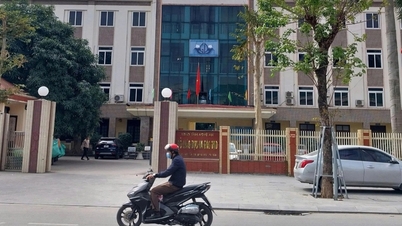







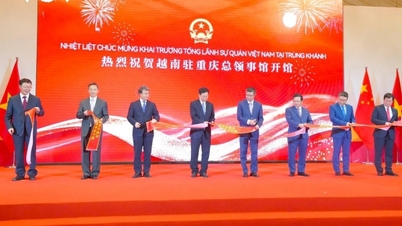
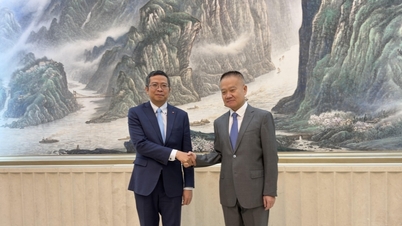


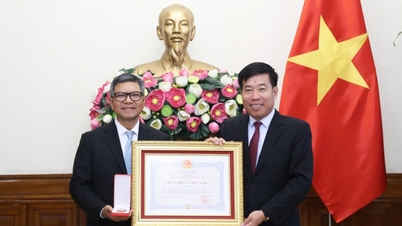











































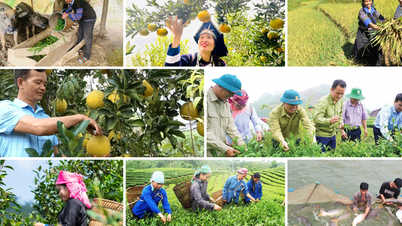






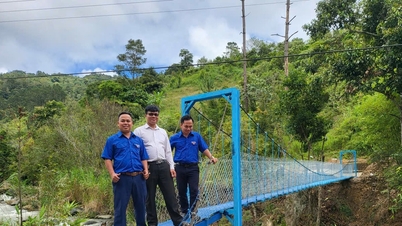






















Comment (0)